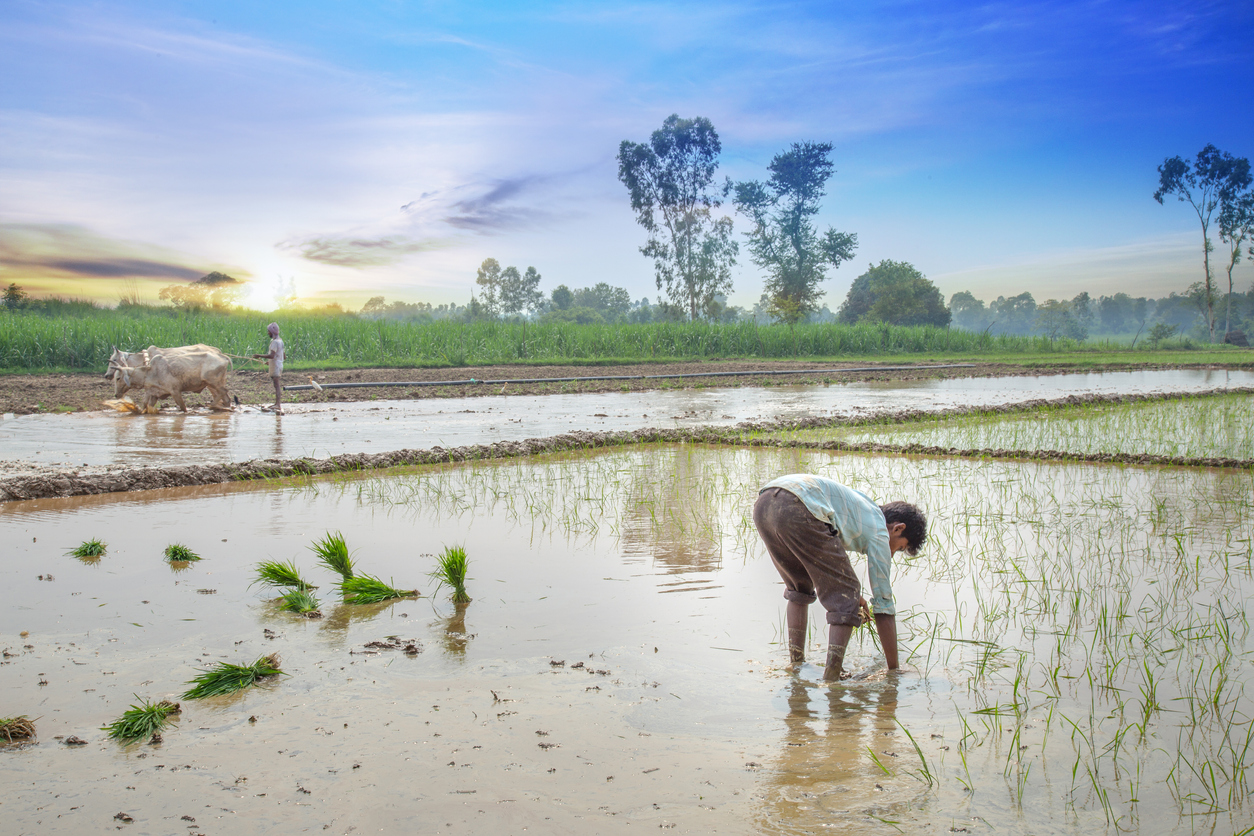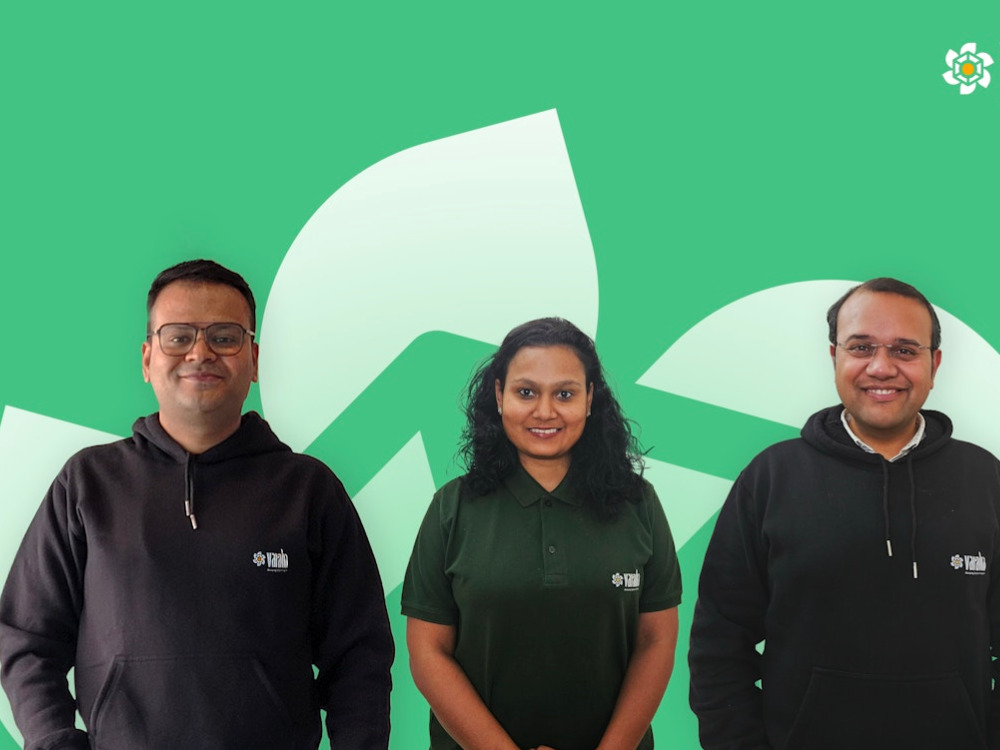- India-based Varaha has raised $8.7 million in Series A funding for its full-stack climate tech that measures and quantifies carbon sequestration and emissions reduction for regenerative agriculture, afforestation and biochar projects.
- Early-stage VC firm RTP Global led the round with participation from returning investors Omnivore and Orios.
- Japan institutional investor Norinchukin Bank also participated, as did new investors AgFunder and Octave Wellbeing Economy Fund. [Disclosure: AgFunder is the parent company of AgFunderNews.]
- New funds will go towards expansion in Asia and East Africa, as well as new hires for Varaha.

Breaking ‘the vicious cycle’ for smallholder farmers
Founders Madhur Jain (CEO), Ankita Garg (COO) and Vishal Kuchanur (CTO) all have backgrounds in agriculture (in addition to biotech and software), which propelled them to start the company in 2022.
Varaha named itself after the avatar of Hindu deity Vishnu, best known for lifting the earth from the cosmic ocean and restoring it.
“Just having worked in agriculture for such a long period of time, we saw that agriculture contributes 24% of the total global emissions, which leads to climate change and global warming, which affects the smallholder farmer most,” Jain tells AgFunderNews.
Varaha aims to break this “vicious cycle” and replace it with a more positive one that helps farmers move towards more sustainable practices that lead to emissions reductions and healthier soil.
“It makes the environment better, mitigates climate change, and also increases the fertility of the soil itself to increase productivity,” Jain notes.
To aid in this process, Varaha offers what it calls “an end-to-end project developer for carbon credits” specifically geared towards smallholder farmers.
With the help of intermediaries, Varaha helps farmers transition to more climate-friendly farming practices. It then provides the technology to validate these practices, which in turn can generate carbon credits Varaha sells to companies. Some of its clients include Klimate in Denmark, Good Carbon in Germany and Carbon Future in Switzerland. There is also strong interest coming out of the US.

How it works
Jain says there are three parts to the Varaha platform.
The first is data collection from the ground, which “entails basically marking farmers’ boundaries, which crops they are growing and which practices they are following.”
From there, Varaha validates farmer practices — that is, “whether they are actually doing them on the ground or not.” For this step, Varaha employs remote sensing and machine-learning models.
“This is where our major differentiation lies,” says Jain. “We are able to hire and manage an operations team to get us high-quality data from the ground for training these models. Across seasons, across different practices, we are able to maintain that agility to get high-quality data to make these models faster, and also improve them every season.”
He says this applies to all the major crops grown in the geographies the company services, including rice, wheat and maize.
After validating the farmer practices, Varaha quantifies them in terms of emissions reductions and sequestration.
Farmers get around 60% to 65% of the value of the carbon credits; Varaha usually takes 20% to 25%, while 10% to 15% goes to its partners.
As to how much a farmer can expect from carbon credits, Jain gives the example of rice.
“In a rice wheat ecosystem, a farmer creates close to four credits per hectare. Each farmer has two hectares of land, which means eight credits per farmer. Each credit sells for $20. So that’s $160 total carbon income out of which the farmer gets 70%, roughly $100 in additional income.”
Galina Chifina, a partner at RTP Global’s Asia team, calls the Varaha approach “unique.”
“The approach of Madhur and his team to generating carbon credits through nature-based solutions has the potential to become a game-changer for the industry.”
Creating value beyond carbon
Nor is Varaha’s mission solely about generating carbon credits.
“It’s not the carbon which is actually creating the most value, but it’s creating a systemic change in terms of input use, soil fertility and increase in production, which leads to almost 29% increase in income,” says Jain.
“It provides that initial nudge for the farmers to do these practices and make some additional money on top of it.”
He notes that “while there is a slight decrease in yield in the first two years” after transitioning to more sustainable practices, “over a period of five years, the yield goes up because the soil regains so much fertility. The most important thing is that from year one, because of carbon credit income going to the farmers, they become profitable.”




